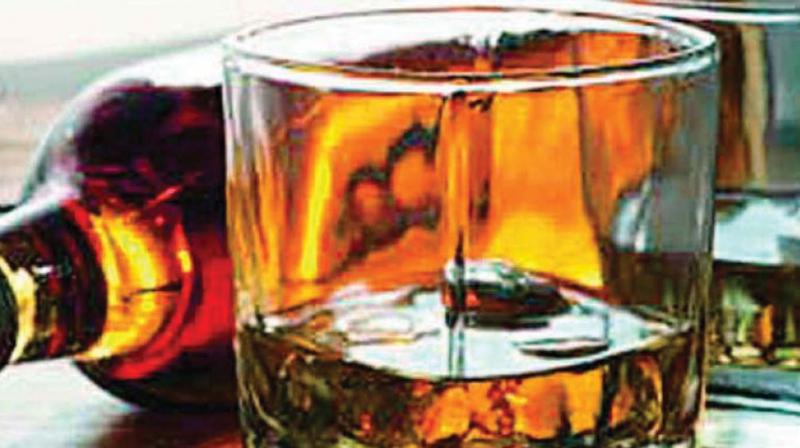Tipplers hang on, implant to curb your drinking habit

Thiruvananthapuram: Thiruvananthapuram is among six centres where the Union Ministry of Health and Family Welfare plans to launch its pilot project for naltrexone implant to wean tipplers away from hazardous drinking.
National Drug Dependence Treatment Centre at the All-India Institute of Medical Sciences will train experts at the Government Mental Health Centre in Peoorkada, which will emerge as the nodal centre for treatment and training in the state.
Health Minister K. K. Sailaja told DC that Dr Rakesh Lal, who heads the AIIMS treatment centre, discussed the project with her this week and explained the relevance of the implant as against other forms of administration of the drug. She has sought a detailed report on the implementation as it involves meticulous monitoring and follow-up of those lining up for treatment. When contacted, Dr Lal said the next step is obtaining the clearance from the Drug Controller General of India. He had discussed with Kerala officials aspects of ethical approval, as mandated of each collaborating centre.
Thiruvananthapuram has been chosen for the pilot project because of the State’s high liquor consumption, at over 8 litres per person per year. This is above the national annual average alcohol consumption, which is 5.7 litres per person per year. Naltrexone is being used to treat alcohol and opioid craving. A daily dose of the drug is recommended for those willing for the detox. Yet it has been shown that some of those on the detox regimen, after going dry for a few weeks, become overconfident and start taking a peg or two; inevitably they relapse. The naltrexone implant addresses this problem as it automatically releases the drug to curb the craving; one is likely to skip the tablet occasionally. The implant is attached to the skin with an adhesive and it remains for three months. Depending on the outcome, the implant is repeated or dispensed with.
“The implant is a guarantee against slippage. The tippler remaining off alcohol for six months at a stretch helps him kick the habit”, says Dr Rakesh Lal. Dr T Sagar, the superintendent at the Government Mental Health Centre, said the current treatment modality is to give anti-craving drugs such as disulfiram and acamprosate. But the disadvantage is the high rate of relapse as many skip taking the drug regularly. The new implant a sure shot against alcohol-dependency and the facility here would give the 150-year-old asylum-turned-hospital-turned health centre to graduate into a research centre. “This is remarkable because all other implant centres elsewhere in the country are medical colleges”.

